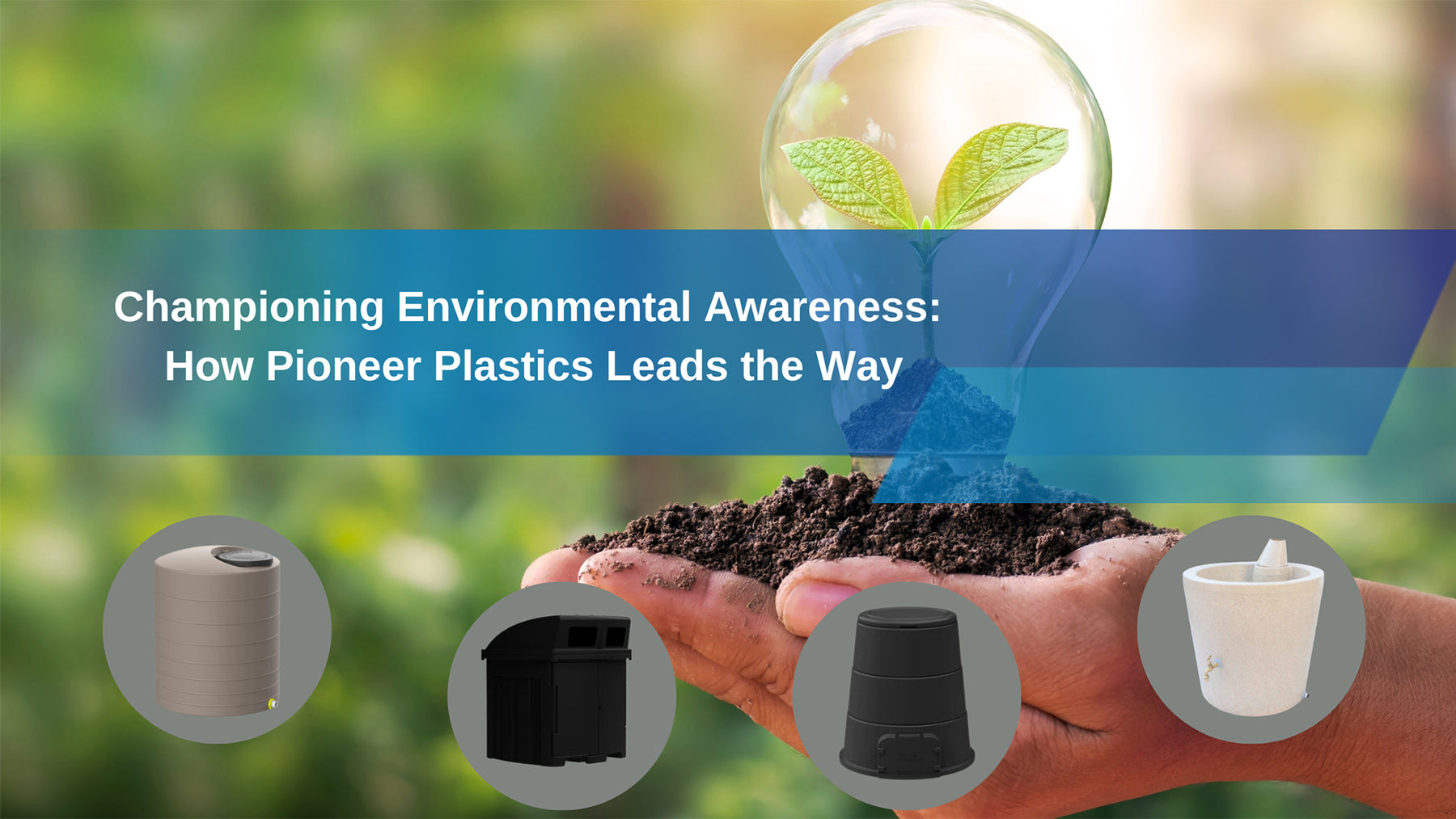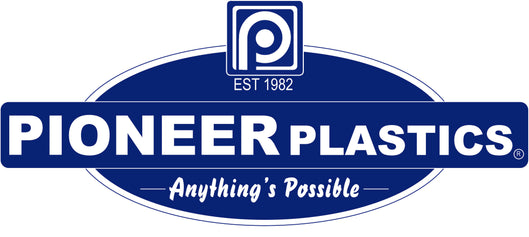
Environmental Awareness: Pioneer Plastics Leading the Way
November is considered environmental awareness month. While the news and socials paint a bleak picture of plastics, it’s essential to know which plastics cause harm and—surprisingly—those that actually combat major ecological problems.
Find out more about good and bad plastic and how we’ve Pioneered sustainability and eco-conscious endeavours throughout our forty-year existence.
Single-Use Versus Lifetime-Use Plastic
Lifetime-use plastic is a more environmentally friendly option compared to single-use plastic.
Using durable, reusable plastic products reduces the overall demand for plastic production and minimises waste generation. Not only does this approach contribute to a sustainable and eco-friendly future, but it helps us to conserve resources today.
There are times when plastic is the superior choice for health, safety, and economic sustainability!
For example, agriculture often requires large quantities of water to be stored at once.
Materials like steel, glass, and bamboo are impractical due to rusting, fragility, and degradation. Polyethylene plastic, on the other hand, is resistant to odour, light, adverse weather, and corrosion. It is also food-safe!
Considering the above, plastic is the most sensible option, providing non-contamination and affordability advantages.
The great news is that polyethylene plastic tanks can be used for decades, and once their lifespan is over, they can be recycled. This choice of plastic helps you to REDUCE and REUSE.
Recycling!
As responsible citizens of the earth, we should all strive towards recycling as it plays a crucial role in drastically reducing the carbon footprint associated with plastic manufacturing.
We can actively contribute to a more sustainable and environmentally conscious world by choosing to reuse and recycle plastic.
All Pioneer Products are 100% recyclable. We also put tremendous work into promoting recycling with our wide recycling bin range and educational articles.
One of our previous blogs, “What you should know about plastic recycling”, provides a few interesting facts about the use of plastic and the environmental impact of recycling. More importantly, it shows you which types of plastics can or can’t be recycled—so you can make informed decisions about the plastics you use.
|
RECYCLING NUMBER |
ABBREVIATION |
POLYMER NAME |
RECYCLABLE |
|
1 |
PETE or PET |
Polyethylene Terephthalate |
Yes |
|
2 |
HDPE |
High-Density Polyethylene |
Yes |
|
3 |
PVC |
Polyvinyl Chloride |
Yes - but call your recycler |
|
4 |
LDPE |
Low-Density Polyethylene |
Yes - but call your recycler |
|
5 |
PP |
Polypropylene |
Yes |
|
6 |
PS |
Polystyrene or Styrofoam |
Yes - but contaminated Polystyrene can be a problem |
|
7 |
N/A |
Miscellaneous Plastics |
Not usually – call your recycler to verify |
Feel free to catch up on this blog about how to recycle too.
Working towards Zero-Waste
We support our government’s efforts to reduce (and hopefully eliminate) waste that goes to landfills.
To achieve that goal, we all need to recycle as much as possible, including paper, glass, metals, electronics, and batteries.
We also need to encourage people to dispose of their litter responsibly. Even if there are no recycling bins handy, the public must learn to put their rubbish in the bin!
View more about recycling bins and garbage/wheelie bins here
Pollution from litter kills birds and wildlife; clogs are stormwater drains, leading to flooding and infrastructure damage.
Increasing environmental awareness is the best way to combat litter pollution and pollution from leeching at landfills. Here are some steps to help!
-
Make it as easy as possible for people to dispose of rubbish.
This can either be via separation at source for recycling programmes or making general waste dustbins widely available on your property. -
Encourage composting!
Composting benefits you twice: reducing waste to landfill and creating nutrients to feed your veggie and herb garden, which help you save money at the store!
If you’re keen on more information, take a look at 5 great reasons to start composting right now.
Sustainable Resources
Environmental awareness and eco-consciousness don’t only revolve around recycling but preserving natural resources as much as possible, too.
Tons of litres of water are used in manufacturing processes and, sadly, wasted in our homes. Imagine what a difference we could make if every household committed to sustainable water practices like rainwater harvesting.
We’ve written at length about water storage and rainwater harvesting subjects. These systems allow you to collect and store rainwater for various purposes, saving you money on utility bills.
Click here to learn more about water tanks here and rainwater harvesting systems.
Pioneer Plastics Is at The Forefront Of Promoting Environmental Awareness
We want to drive sustainability by advocating for the responsible use of plastics. We believe that part of the solution is distinguishing between harmful single-use plastics and eco-friendly, durable ones and creating educational resources about recycling and other resource-saving practices.
Our commitment extends to supporting efforts to reduce landfill waste, encourage responsible litter disposal, and promote rainwater harvesting as a sustainable way to preserve natural resources.
Here is to the next forty years, where we will remain dedicated to sustainability, recycling, and responsible waste management, aligning with the goal of a more eco-conscious and environmentally friendly future.
Want to chat? We’re all ears! Please feel free to reach out over email with your questions







